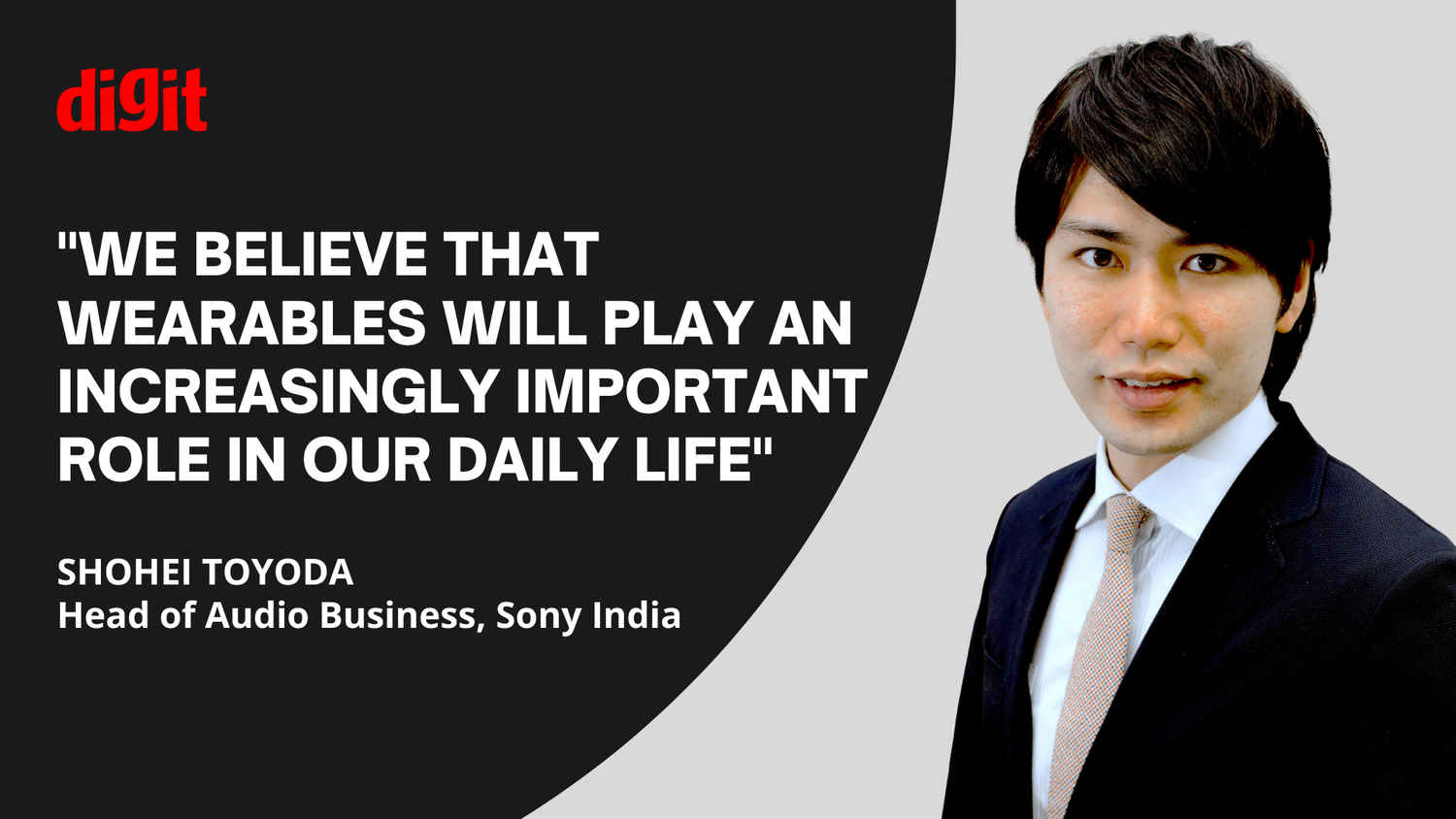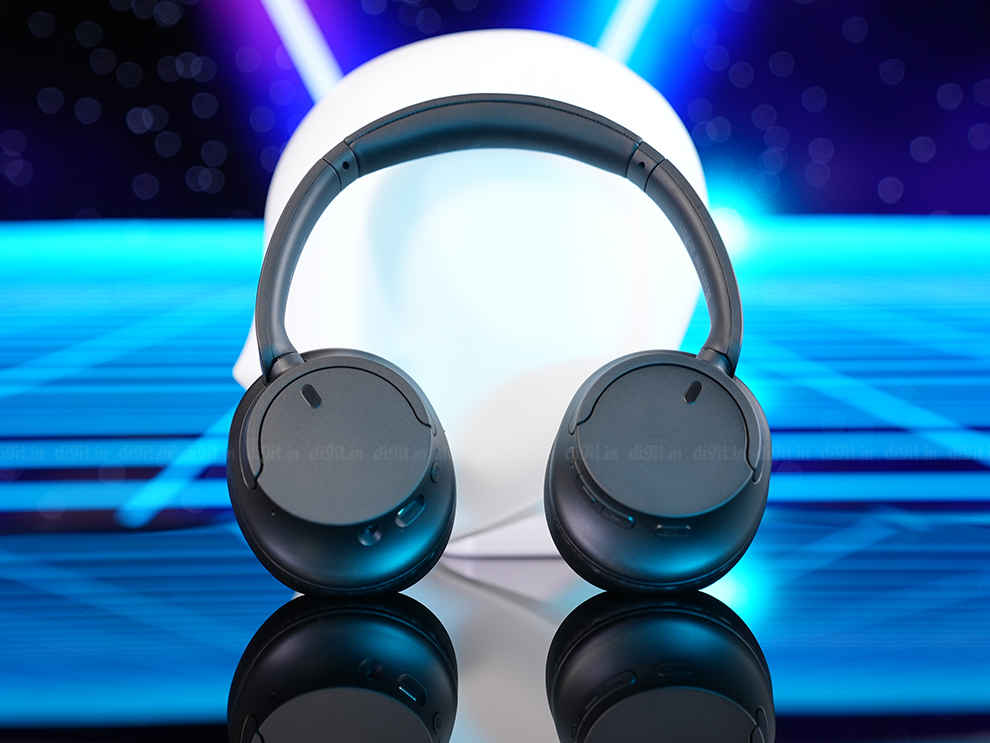Sony’s Shohei Toyoda on changing trends in the audio industry, Sony’s in-house custom audio chips, and more

The audio industry is growing at an exponential rate year after year with new trends emerging that benefit consumers. The industry has also seen a shift in trends as we emerge from the work-from-home norm as people across industries begin going back to offices for work. Features such as Active Noise Cancellation, Transparency/Ambient Mode, Low-Latency Mode, and others are increasingly sought after by individuals irrespective of price. We’ve seen TWS as low as ₹2,000 come packing ANC abilities while over-ear headphones priced at ₹7-10K are being shipped with this once-elusive feature as well. We recently tested the Sony WH-CH720N (review) which is a great example of this changing trend. To that end, we spoke to Shohei Toyoda, Head of Audio Business at Sony India to understand changing audio trends in 2023, gain an insight into Sony’s lauded in-house ANC chipsets, and get a glimpse of what Sony’s R&D industry may be working on in the near future.
Digit: The past three years have been challenging for those in the space of consumer electronics. With trends changing yet again this year, with individuals going back to work, how is Sony adapting to the change in trends?
Shohei Toyoda, Sony: At Sony, we are keeping a close watch on the market trends and the ever-evolving requirements of our customers. We have observed a shift in customer purchase behaviour towards premium segment headphones with a particular emphasis on advanced features such as top-notch noise cancellation, exceptional audio quality, feather-light weight, prolonged battery life and seamless connectivity across multiple devices.
We have recently launched two new headphones that cater to modern-day consumer demands. The WH-CH720N noise-cancelling headphones and WH-CH520 headphones are designed for prolonged usage, delivering a remarkable battery life of 50 hours. These headphones provide an immersive audio experience while ensuring ultimate comfort for extended periods of time.
Digit: Can you give us some insight into Sony's in-house custom chips used in Audio products and how they improve the quality of your headphones?
Shohei Toyoda, Sony: Sony has been working on technology to give the best-in-class experience to customers. Our Dual Noise Sensor technology captures ambient noise and passes the data to the trusted HD Noise Cancelling Processor QN1. Then a new BLUETOOTH Audio SoC (System on Chip) senses and adjusts to music and noise at over 700 times per second. Using a new algorithm, the HD Noise Cancelling Processor QN1 applies noise cancelling processing in real time. This allows the user to focus more on the music they love and blur out the chaos of the outside world.
Digit: The audience for soundbars has been growing in India. How is Sony doing in this space and what has the revenue been like? How much do soundbars as a category contribute to Sony Audio's revenue stream?
Shohei Toyoda, Sony: Owing to the increasing popularity of OTT content consumption and with the vast library of Dolby Vision and Dolby Atmos content, there has been a huge surge in the demand for large-screen televisions and premium soundbars as consumers seek to replicate a cinematic experience in their homes.
We have been leading the premium soundbar category and have achieved double-digit growth in FY22 as our premium soundbars make a significant contribution to the audio category’s overall revenue stream. We have invested heavily in cutting-edge technology to offer soundbars that deliver an immersive audio experience and seamlessly integrate with other devices.
Digit: Sony has had a dominating presence in the Active Noise Cancellation space for audio products. How does Sony stay ahead of the curve and maintain this presence over brands such as Bose?
Shohei Toyoda, Sony: Sony has been a dominant player in the Active Noise Cancellation (ANC) market for audio products for several years now. Our unwavering commitment to product excellence and relentless pursuit for technological innovation has enabled us to stay ahead of the curve and maintain our leadership position in the ANC segment. We attribute a major part of this success to the 1000X series headphones, which we introduced in 2016. Since then, these headphones have set a new benchmark for noise cancellation performance and we have continued to build on that foundation by constantly improving and developing the QN1/V1 Integrated Processor, which powers our ANC technology. This has resulted in us providing the best-in-class consumer music listening experience to our consumers.
Digit: ANC has been the next big thing in the audio industry for a while. What is the next big thing Sony's R&D team is working on?
Shohei Toyoda, Sony: At Sony, we are committed to innovation and constantly exploring ways to integrate cutting-edge technology into people's lives. As we look into the future, we believe that wearables will play an increasingly important role in our daily life as the boundary between online and offline becomes increasingly blurred. Our focus is on developing wearables that offer a seamless, intuitive user experience and leveraging the latest advancements.
Sony's latest affordable ANC headphones – WH-CH720N
Digit: Sony's latest ANC headphone – the Sony WH-CH720N provides users with a good ANC option under 10K. Considering India has a price-conscious audience, will Sony be developing more inexpensive ANC headphones? What are the compromises made to bring down the price?
Shohei Toyoda, Sony: We are unable to comment on future product line-up and there will always be a product for every consumer with their growing demands.
Digit: Will Bluetooth LE change how we use headphones in the future and what are the benefits?
Shohei Toyoda, Sony: Bluetooth LE technology is a next-generation Bluetooth audio that offers ultra-low latency, improved battery life, and enhanced connectivity. Its low latency makes it ideal for gaming and real-time audio, providing an immersive experience. Additionally, it offers longer listening sessions and stable, reliable connections between headphones and audio devices, eliminating the need for wires. Bluetooth LE technology has the potential to revolutionize the headphone category with improved audio quality and greater connectivity.
Digit: Companies like KZ, Lypertek and even OPPO have been in the space of including dual and triple drivers to improve sonic fidelity for a while. Is Sony experimenting with the same? If yes, why? If not, why?
Shohei Toyoda, Sony: Sony has been a pioneer in the audio industry and we believe that the best listening experience is not solely dependent on the number of drivers and it is essential to reproduce sound with high-quality drivers and advanced processing technologies. For instance, Sony's Edge-AI (Artificial Intelligence) and DSEE Extreme technology upscale compressed music files in real-time to provide consumers with the best possible listening experience.
Dhriti Datta
Perpetually sporting a death stare, this one can be seen tinkering around with her smartphone which she holds more dear than life itself and stuffing her face with copious amounts of bacon. View Full Profile





